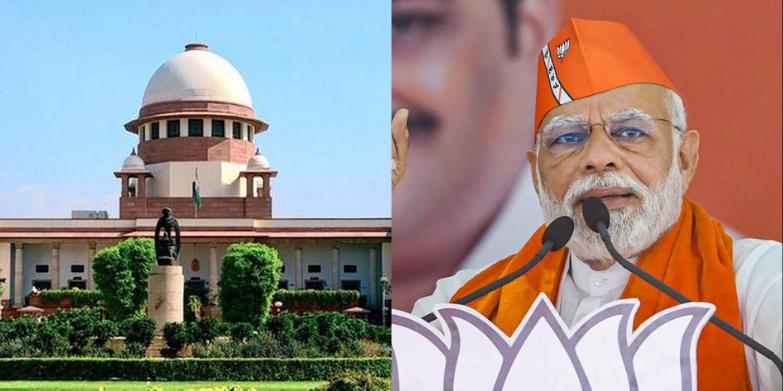In a significant legal development, the Supreme Court is set to hear a plea filed by the Kerala government against Governor Arif Mohammed Khan. The state government accuses the Governor of not granting assent to eight bills approved by the state Assembly. This legal battle underscores a broader trend observed in non-BJP ruled states, where Governors are facing scrutiny for prolonged delays in approving crucial bills. The issue brings to the forefront questions about the constitutional role of Governors and their relationship with state governments. The Kerala Government’s Plea: The Pinarayi Vijayan-led Kerala government has approached the apex court, alleging that Governor Arif Mohammed Khan’s failure to give assent to the bills is compromising the rights of the people. The court had issued a notice to the Centre and the Governor’s office, seeking their responses and has scheduled further hearings on Friday.
Supreme Court’s Verdict on Punjab’s Case: The legal battle in Kerala echoes a recent verdict in the case of the Punjab government versus Governor Banwarilal Purohit.The Supreme Court, in a ruling on November 10, emphasized that a Governor, as an unelected Head of the State, possesses certain constitutional powers but cannot use them to obstruct the legislative process. The court stated that a Governor cannot keep a bill pending indefinitely without any action and must communicate a message warranting reconsideration to the State Legislature as soon as possible. Tamil Nadu’s Similar Allegations: The M K Stalin-led Tamil Nadu government has also moved the Supreme Court, making analogous allegations against Governor R N Ravi. The apex court’s rebuke of Governor R.N. Ravi for protracted delays in approving pending bills has raised questions about the role of Governors in non-BJP states. The court’s stern stance prompted a detailed response from Tamil Nadu’s Advocate General, R. Venkataramani. Non-BJP State Governors Under Scrutiny: The instances in Kerala, Punjab, and Tamil Nadu collectively indicate a trend where Governors in non-BJP ruled states are being criticized for allegedly stalling important bills for extended periods. Opposition parties have raised concerns, suggesting that Governors in these states may be influenced by political directives from the central government.
Constitutional Implications: These legal battles raise crucial questions about the constitutional role of Governors and the limits of their powers. While Governors are entrusted with certain powers, the Supreme Court’s recent rulings emphasize that these powers cannot be wielded in a manner that obstructs the normal course of lawmaking by state legislatures.
The upcoming Supreme Court hearing on the Kerala government’s plea against Governor Arif Mohammed Khan is poised to shed light on the evolving dynamics between Governors and state governments, particularly in non-BJP ruled states. The legal battles underscore the need for a clear delineation of constitutional roles to ensure the smooth functioning of the democratic process without undue delays in the approval of crucial legislation.

